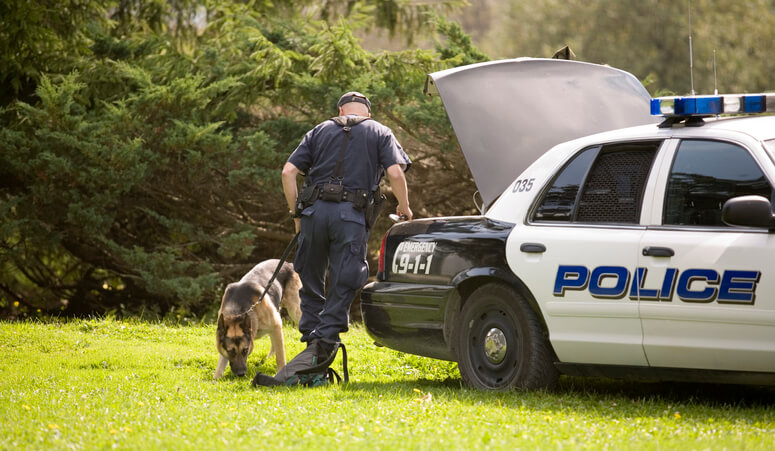Few things can be as stressful as interacting with law enforcement in an unexpected situation, such as getting pulled over by a State Trooper or having a Nassau County police officer come to the front door of your home. If you’re like most folks, you are going to want to accommodate the law enforcement officer. In your own mind, you don’t think you have anything to hide, but your instincts may be wrong and you could be waiving your Constitutional rights against unreasonable searches and seizures.
The Fourth Amendment to the Constitution requires law enforcement to obtain a search warrant in most situations. There are a number of exceptions to this rule, such as when a person is being arrested, when the items are in plain sight of the law enforcement officer, in emergencies, and when the person being searched has given their consent. This is why it is crucial to know when the police cannot subject you to a warrantless search. In the following, we will examine three scenarios involving potential warrantless searches. This will help you better understand your Constitutional rights, allowing you to better navigate a stressful situation.
Can police search your car without a warrant?
The most common encounters most people have with law enforcement is during a routine traffic stop. You may get pulled over for speeding, going through a traffic light or stop sign, having a busted taillight, or even for a standard DWI checkpoint. The police have the absolute right to stop you if they think you may have violated a traffic law. In many cases, they have the ability to search your vehicle without a warrant. This is known as the automobile exception, and it came about because cars are mobile, so the ability to obtain a warrant to search a car for evidence would be difficult under the circumstances. The courts have also noted that any evidence inside the car could be hidden or destroyed while law enforcement was busy getting a warrant.
Nevertheless, the search for items inside the car is not absolute. Police have to have a reasonable suspicion that contraband or evidence of a crime is being hidden inside the vehicle before making a search. For example, if they suspect a motorist is hiding a large amount of drugs in the car’s trunk, they cannot also search the glove compartment.
The plain sight rule can also come into effect. If the officer spots an open bottle of alcohol, a gun, a bag with white powder, or other potential evidence of a crime when looking into your car, then a warrantless search of your car may be legitimate. In any event, if you get pulled over and the officer asks to search inside your vehicle, find out what he or she is looking for before you give your consent.
Can police search your house without a warrant?
Your Fourth Amendment rights against unreasonable searches are very strong in your home. In most cases, the police will need a warrant before they can enter your house and begin a search. Nevertheless, there are a number of limited exceptions that will permit the police a conduct a warrantless search of your residence.
The most common scenario for a permissible warrantless search is where someone with authority gives their consent to the search. This applies to any adult inside the residence who the police reasonably believe has the right to give such consent. So, consent cannot be given by someone under the age of 18.
The police also have the right to conduct a warrantless search inside the home if they were called there for an emergency, such as a report of domestic violence. Similarly, law enforcement can enter your home if they are in hot pursuit of a perpetrator who flees into your residence. A warrantless search is also permitted of your home if the police are there to arrest you or another member of your household.
Can police search your phone without a warrant?
One of the most surprising areas of the law concerns cell phones. Unless you give your consent, a police officer cannot search your phone without a warrant. This even applies if you have been arrested. So, if you are taken into custody by law enforcement, you have the absolute right to refuse a search of your phone. This is important since today’s smartphones contain more than just a record of our phone calls. They are basically mobile computers that have information about most aspects of our lives. A recent federal ruling in New York made this distinction in holding that customs agents can perform a warrantless search of your luggage, but cannot search your phone unless first obtaining a warrant.
Call us if you have experienced an unlawful search
The Fourth Amendment protects you from unlawful searches, including warrantless searches of your car, home, and phone in many circumstances. If you have been subject to a warrantless search by law enforcement here in New York, call the Law Firm of Michael A. Arbeit, P.C. Our trained criminal defense attorneys will fight to defend your rights under the law.

